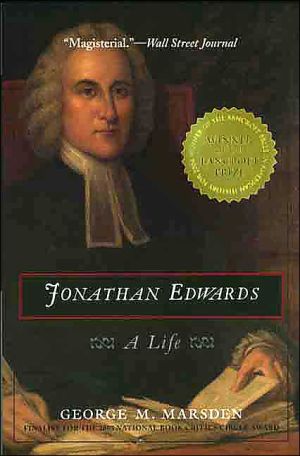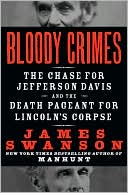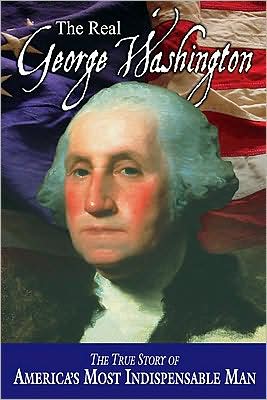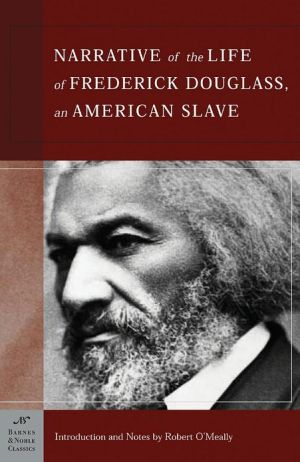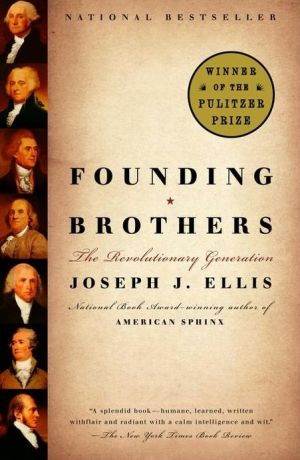Jonathan Edwards: A Life
Jonathan Edwards (17031758) is a towering figure in American history. A controversial theologian and the author of the famous sermon Sinners in the Hands of an Angry God, he ignited the momentous Great Awakening of the eighteenth century.\ In this definitive and long-awaited biography, Jonathan Edwards emerges as both a great American and a brilliant Christian. George Marsden evokes the world of colonial New England in which Edwards was reared—a frontier civilization at the center of a...
Search in google:
Jonathan Edwards (1703–1758) is a towering figure in American history. A controversial theologian and the author of the famous sermon Sinners in the Hands of an Angry God, he ignited the momentous Great Awakening of the eighteenth century.In this definitive and long-awaited biography, Jonathan Edwards emerges as both a great American and a brilliant Christian. George Marsden evokes the world of colonial New England in which Edwards was reared—a frontier civilization at the center of a conflict between Native Americans, French Catholics, and English Protestants. Drawing on newly available sources, Marsden demonstrates how these cultural and religious battles shaped Edwards’s life and thought. Marsden reveals Edwards as a complex thinker and human being who struggled to reconcile his Puritan heritage with the secular, modern world emerging out of the Enlightenment. In this, Edwards’s life anticipated the deep contradictions of our American culture.Meticulously researched and beautifully composed, this biography offers a compelling portrait of an eminent American. The New York Times Marsden, himself an evangelical believer, puts Edwards back where he belongs, firmly in the theological world of the Reformation. — Gary Wills
Jonathan Edwards\ A Life \ \ By George M. Marsden \ Yale University Press\ Copyright © 2004 George M. Marsden\ All right reserved.\ ISBN: 0300105967 \ \ \ \ Chapter One\ \ \ God accompanied his blessings with warnings of his judgments. Solomon Stoddard, pastor of the river town of Northampton, Massachusetts, knew that well and preached it often. Although he was the most renowned man in the promising valley of the Connecticut River, he knew that no mortal could guarantee the survival of the English on this beleaguered frontier. In 1703 the little towns stretched out along the river were not the peaceful New England villages of later postcards. Many of them looked more like armed garrisons, especially from Northampton north to Deerfield, the region most vulnerable to Indian attacks. Part of Northampton itself was surrounded by a stockade wall and the town was divided into "military divisions." Some families picketed their homes as well, creating an ominous effect almost the reverse of the next century's white picket fences.\ Stoddard often served as a spokesman for the western half of Massachusetts. According to legend, the witticism in this hyper-Protestant land was that Stoddard aspired to be the "pope" of the Connecticut Valley. He was at least a formidable presence. Every year he traveled 120 miles to Boston, the capital city, a horseback journey of two-and-a-half days, often preaching at a major public event, either the Harvard commencement or election day. Stoddard was a large, impressive man and a powerful preacher famed for speaking without notes. Sixty years old in 1703, he had come of age in Boston when Oliver Cromwell ruled in England, and he still dressed in the austere Puritan manner. Stoddard disdained the modern fashion of gentlemen wearing wigs. Some of Boston's Congregational clergy now affected such English manners. To him their wigs made them look "as if they were more disposed to court a maid, than to bear upon their hearts the weighty concernments of God's Kingdom." Yet Stoddard was also a man of affairs: his brother was a leading Boston merchant, the influential Judge Samuel Sewall was a close friend, and governors sought his advice on matters concerning the western regions of the colony.\ On May 26, 1703, election day, Stoddard preached "before his excellency, the governour, the honoured Council and Assembly," and his fellow clergy on "The way for a People to Live Long in the Land that God hath Given Them." The subject was survival. The text was the Fifth Commandment: "Honour thy father and thy mother, that thy days may be long upon the land which the Lord thy God giveth thee" (Exodus 20:12). The commandment taught, as the Puritans had conventionally argued, to honor not only parents but "all who are in authority," including civil rulers and clergy. These were God's representatives on earth. To honor them was to honor God. Survival and prosperity depended on honoring God.\ The latest threats to New England arose because England was, for the second time in a decade, at war with France. Queen Anne's War renewed two deadly conflicts for the colonists. Most monumental in New Englanders' minds was the contest with Roman Catholicism, with the Antichrist. Under Louis XIV, Catholic France was at its zenith, and New France was on New England's borders. The Sun King revoked the Edict of Nantes in 1685 and drove French Protestants from their homeland. Huguenot refugees in the Boston audience were ready with tales of Catholic cruelty. England, too, it was feared, could revert to becoming a Catholic domain. Although Protestants had ousted the openly Catholic James II in 1688, the question of succession was still in a turmoil. Parliament had declared in 1701 that only Protestants might succeed to the throne, but Queen Anne (r. 1702-14), a Protestant daughter of James, had no surviving children, and Louis XIV supported James' Catholic son, James III, or the "Pretender," as the rightful "King of Great Britain and Ireland." In New England, heirs to the Puritans knew that their liberty and their destiny as a people depended on the triumph of the Protestant cause.\ War with France also renewed the more immediate deadly threat of Indian attacks on the colonial frontiers. The New Englanders' most conspicuous failure was their relationship to the natives they were displacing. King Philip's War of 1675-76, the most destructive war in losses per capita in American history, ended early hopes for peaceful relations and successful missions. Many of the surviving Indians were driven into the arms of the French and-worse-their Jesuit missionaries. The 15,000 French residents of New France would have been little threat to the far more numerous New Englanders, except for their Indian allies. Because the French population was small, it had not displaced Indians from their lands, making relations with the natives generally more harmonious and missionary work more effective.\ In this wartime setting Stoddard's message to the royal governor and the Massachusetts legislators was what would become classic advice from the American west: keep taxes low and defenses strong. "Do not lay unnecessary burdens on the people, yet be willing to expend what is necessary." "People are in a bad condition" when those who are "to preserve them" are "pillaging of them themselves: when their shepherds prove like evening wolves." Yet at the same time the government "may not decline any necessary [expense for] the safety of the land," lest New England go the way of Carthage and Constantinople, which were lost "through the penuriousness of the people."\ The far deeper problem, Stoddard declared, was moral and spiritual. God was punishing New England because its people violated his commandments. The evidence was clear. "God has had a great controversy with the country for many years," Stoddard warned in familiar terms. Stoddard, who could have been a businessman himself, had calculated the economic consequences of God's judgments: "I do judge that a third part of that income, that the country had or might with an ordinary blessing have had, has been taken away by the judgements of God." The only solution was "the work of reformation." "We live in a corrupt age, and multitudes of men take a licentious liberty, in their drinking and apparel, and company, and recreations, and unsavory discourses," Stoddard warned in vintage style. Perhaps with a glance at the powered wigs among the assembled clergy, he added ominously, "and ministers living in an infectious air, are in danger to be infected also." Many people of the land made a "profession of godliness." The clergy must now "labour after their sincere conversion" more effectively.\ Stoddard believed that God had brought this people to this promising land with an eternal purpose. God had designed all their earthly blessings and punishments, promises and warnings, to teach them of their need for a higher citizenship, to accept God's free gift of an eternal kingdom. New Englanders should thank God for their temporal blessings, yet they must always bear in mind that they were no better than the people of Old Testament Israel. God, like a loving father, taught them by chastisements as much as by blessings. Israel, New England's model, had lost its land and been carried into captivity.\ \ Northampton, October 1703\ Solomon Stoddard knew well, then, how he should interpret the juxtaposition of earthly emotions that confronted him in early October 1703. Within a week he heard the news from down river, from East Windsor, Connecticut, that his daughter Esther Stoddard Edwards had borne a child-finally a son after four daughters-and he also received an alarming report that threatened family members closer to home. At Deerfield, just fifteen miles to the north, Indians had ambushed two young men and carried them captive into Canada. John Williams, Deerfield's pastor and the Stoddards' son-in-law, had narrowly escaped a similar fate.\ Deerfield was in a panic. Stoddard wrote to Governor Joseph Dudley urging further protection and tax relief for the already overburdened town. He also proposed a controversial innovation that was later widely adopted: the colonial government might authorize the training of dogs to help track Indians, who were skilled at disappearing into the woods.\ Stoddard had a deep personal stake in the protection of Deerfield in the winter of 1703-4. His stepdaughter, Eunice Mather Williams, had grown up in Stoddard's household after he had married Esther Warham Mather, the widow of Eleazar Mather, Solomon's predecessor at the church in Northampton. (10) Her husband, John Williams, was a leading ministerial ally and a member of the most influential clan in the region. He and Eunice had seven children whom Solomon regarded as his own grandchildren.\ \ \ John Stoddard was probably as brave as any Harvard graduate was likely to be. Unlike an older brother and many of his classmates who had entered the ministry, the multitalented twenty-two-year-old son of Solomon Stoddard was now a young soldier heading toward a career in which he would eventually become commander of the military and the leading magistrate of the region. Whatever his bravery, when he was startled awake before dawn on February 29, 1704, he knew that the better part of valor was to run. No sooner did he hear the desperate call of his brother-in-law, the Reverend John Williams, than he realized that the house was overrun with Indian warriors-perhaps twenty. He must escape. Grabbing only his greatcoat, he was out the back, barefoot, in two feet of snow. Once he made his way across the Deerfield River, he stopped long enough to cut off the bottom of his coat to cover his nearly frozen feet. He arrived completely exhausted at Hatfield, more than ten miles to the south, with the first news confirming the attack. The river towns had already sounded their alarms when they saw the sky ominously aglow with the fires at Deerfield.\ The militia roused to aid the beleaguered town returned with grisly news. The Indians and their French officers had killed 39 of Deerfield's some 300 residents and carried away another 112 through the deep snows as captives to Canada. For the Stoddards, the news, when it was all pieced together, was especially grim. In the early assault the Indians killed two of the Williams' children, six-week-old Jerusha and six-year-old John Jr. in front of their horrified parents. Their mother, Eunice (the Stoddards' daughter), recovering from childbirth and now further burdened by inexpressible grief, faltered and fell crossing a river on the second day of the trek to Canada. An Indian warrior put her out of her misery "with his hatchet at one stroke." The Reverend John Williams and his surviving children were taken as captives to Canada.\ The attack on Deerfield-to New Englanders, a terrorist massacre of innocents (even if the displaced Indians saw it as a justified act of war)-was the defining event of the era, especially for families of the victims, such as the Stoddards. Over a year later Esther Mather Stoddard was still reeling from images of the slaughter of her daughter and two grandchildren. These losses were compounded by the sudden death of a son and by more recent news that another close family member, taken captive at sea, had died in France. "What shall I say?" she wrote to her daughter Esther Stoddard Edwards in East Windsor. "It becomes me Aaron-like to hold my peace. God grant that I may, with Job, come as gold out of the fire when I have been tried." The mother went on to remind her daughter to be prepared for death at any moment. "The time is short, and it may be very short to us that remains, as was to your sister and brother. One day made a great change in my dear daughter's condition." Her best consolation was that her son-in-law the Reverend John Williams, though still in captivity, had sent a letter assuring the family of the spiritual condition of his slain wife. "Son Williams is satisfied that she is now in glory."\ \ East Windsor: Later That Same Era\ Jonathan Edwards' earliest memories were shaped in this wartime setting. Although East Windsor, a small river town near Hartford, Connecticut, was far enough from the frontier to be safe from attack, the continuing war was ever present in defining who he, his family, and his people were. The family gathered for prayers several times a day. In their repeated entreaties he learned not only of distant conflicts, but also that the encounters were not simply among the English, the French, and their Indian allies. The real war was among spiritual powers, a nation God had favored with true religion versus peoples in Satan's grip, Catholics and pagans.\ Retellings of the Deerfield massacre vividly reinforced this understanding of the cosmic significance of the international struggles. Since before Jonathan could remember, family prayers included petitions for his Uncle Williams of Deerfield and cousins, captive in Canada. After Williams and two of his three remaining captive children returned in fall 1706, petitions continued for the one remaining child, Eunice (aged seven at the time of her capture), still with the Indians and, far worse, reportedly under Romish delusions.\ By the time the precocious Jonathan was old enough to read, he would have discovered that one of the most fascinating books in his father's library was his uncle's The Redeemed Captive, Returning to Zion. John Williams' best-selling narrative vividly recounted the horrors of the Indian attack, the agony of seeing two children killed and losing his wife, and the pain of his long captivity among the Indians and French in Canada. Williams' story highlighted the deviltry of the inventions of Rome, the judgment of God on papal superstitions, and the awful plight of the souls of the poor Indians subject to the deceptions of the Antichrist.\ Queen Anne's War (which lasted until 1713) touched the Edwards family directly and almost disastrously. In summer 1711, when Jonathan was in his eighth year, his father, the Reverend Timothy Edwards, set out from home to serve as a chaplain for a colonial military expedition against Canada. Timothy Edwards was an extraordinarily meticulous, careful man, always concerned to control every detail. He was not suited for military life. Almost immediately he fell ill with a nervous stomach. He started to keep a campaign diary, but he soon became so preoccupied with the symptoms of his illness and his spiritual well-being that he recorded little about the campaign. By the time the army reached its staging ground in Albany, he was too ill to go on and feared he might die. Eventually he was shipped by wagon back to East Windsor where he soon recovered.\ Although the Reverend Timothy Edwards' time "in the queen's service" was less than glorious, he was a formidable figure in his own domains-his home and his church. Jonathan, his only son, followed closely in his father's footsteps.\ \ Continues...\ \ Continues... \ \ \ \ Excerpted from Jonathan Edwards by George M. Marsden Copyright © 2004 by George M. Marsden. Excerpted by permission.\ All rights reserved. No part of this excerpt may be reproduced or reprinted without permission in writing from the publisher.\ Excerpts are provided by Dial-A-Book Inc. solely for the personal use of visitors to this web site. \ \
List of MapsixCotton Mather's Map of New EnglandxChronology of Edwards' Life and TimesxiiiPrefacexviiNote on the TextxxiIntroduction1Chapter 1.A Time to Be Born11Chapter 2.The Overwhelming Question25Chapter 3.The Pilgrim's Progress44Chapter 4.The Harmony of All Knowledge59Chapter 5.Anxieties82Chapter 6."A Low, Sunk Estate and Condition"101Chapter 7.On Solomon Stoddard's Stage114Chapter 8.And on a Wider Stage133Chapter 9.The Mighty Works of God and of Satan150Chapter 10.The Politics of the Kingdom170Chapter 11."A City Set on a Hill"184Chapter 12.God "Will Review the Flame Again, Even in the Darkest Times"201Chapter 13.The Hands of God and the Hand of Christ214Chapter 14."He That Is Not with Us Is Against Us"227Chapter 15."Heavenly Elysium"239Chapter 16.Conservative Revolutionary253Chapter 17.A House Divided268Chapter 18.A Model Town No More291Chapter 19.Colonial Wars306Chapter 20."Thy Will Be Done"320Chapter 21."I Am Born to Be a Man of Strife"341Chapter 22.The Crucible357Chapter 23.The Mission375Chapter 24.Frontier Struggles395Chapter 25.Wartime414Chapter 26.Against an "Almost Inconceivably Pernicious" Doctrine432Chapter 27.Original Sin "in This Happy Age of Light and Liberty"447Chapter 28.Challenging the Presumptions of the Age459Chapter 29.The Unfinished Masterworks472Chapter 30.The Transitory and the Enduring490Appendix A.Genealogical Table of Edwards' Relatives507Appendix B.Edwards' Sisters510Appendix C.Edwards' Immediate Family, from His Family Bible511Notes513Credits601Index603
\ The New York TimesMarsden, himself an evangelical believer, puts Edwards back where he belongs, firmly in the theological world of the Reformation. — Gary Wills\ \ \ \ \ The Washington PostIn his superb and engrossing new biography of Jonathan Edwards, George Marsden has given us the most comprehensive account we have of the man who, as much as Benjamin Franklin -- in some ways more than Franklin -- is the spiritual godfather of our nation. — Robert D. Richardson\ \ \ Publishers WeeklyAlthough probably best known for his fire-and-brimstone sermon, "Sinners in the Hands of an Angry God," Jonathan Edwards led a rich intellectual and spiritual life that took him far beyond the pulpit in his contributions to colonial America. In this first critical biography in over 60 years, Marsden, a professor of history at Notre Dame, places Edwards squarely within the context of his times. Drawing on newly available sources in the Yale edition of The Works of Jonathan Edwards, he elegantly traces the details of Edwards's life, from his precocious childhood of observing God's handiwork in the natural world and his adolescent struggles with his faith to his powerful preaching in the revivals that dominated the Connecticut Valley in the First Great Awakening to his later modestly successful mission to the Indians. From his childhood, Edwards struggled to understand the sovereignty of God, and as he later developed his theology he placed the "religious affections" at the center of his notions about God's sovereignty. Marsden reminds us that Edwards struggled with his faith as he labored to write his treatises on the freedom of the will, the religious affections and the nature of true virtue. Marsden's elegant prose and vivid, vivacious storytelling brings Edwards to life. This magisterial and definitive biography reveals the complexities of Edwards's life and provides new appreciation for his commitment to fostering religious sensibilities in the increasingly secular world of his time. This is a beautifully written book about one of America's most important thinkers. (Apr.) Copyright 2003 Reed Business Information.\ \
